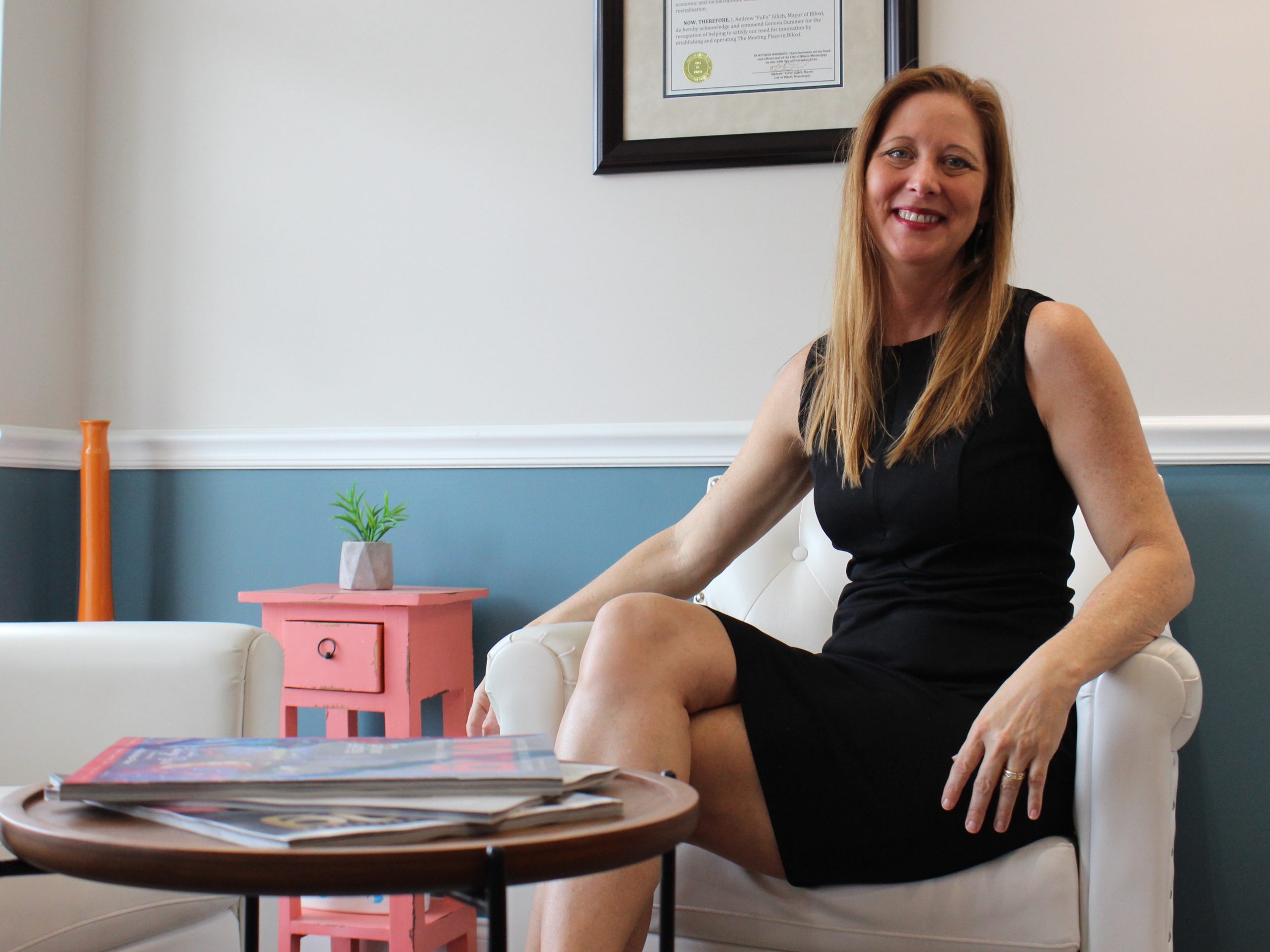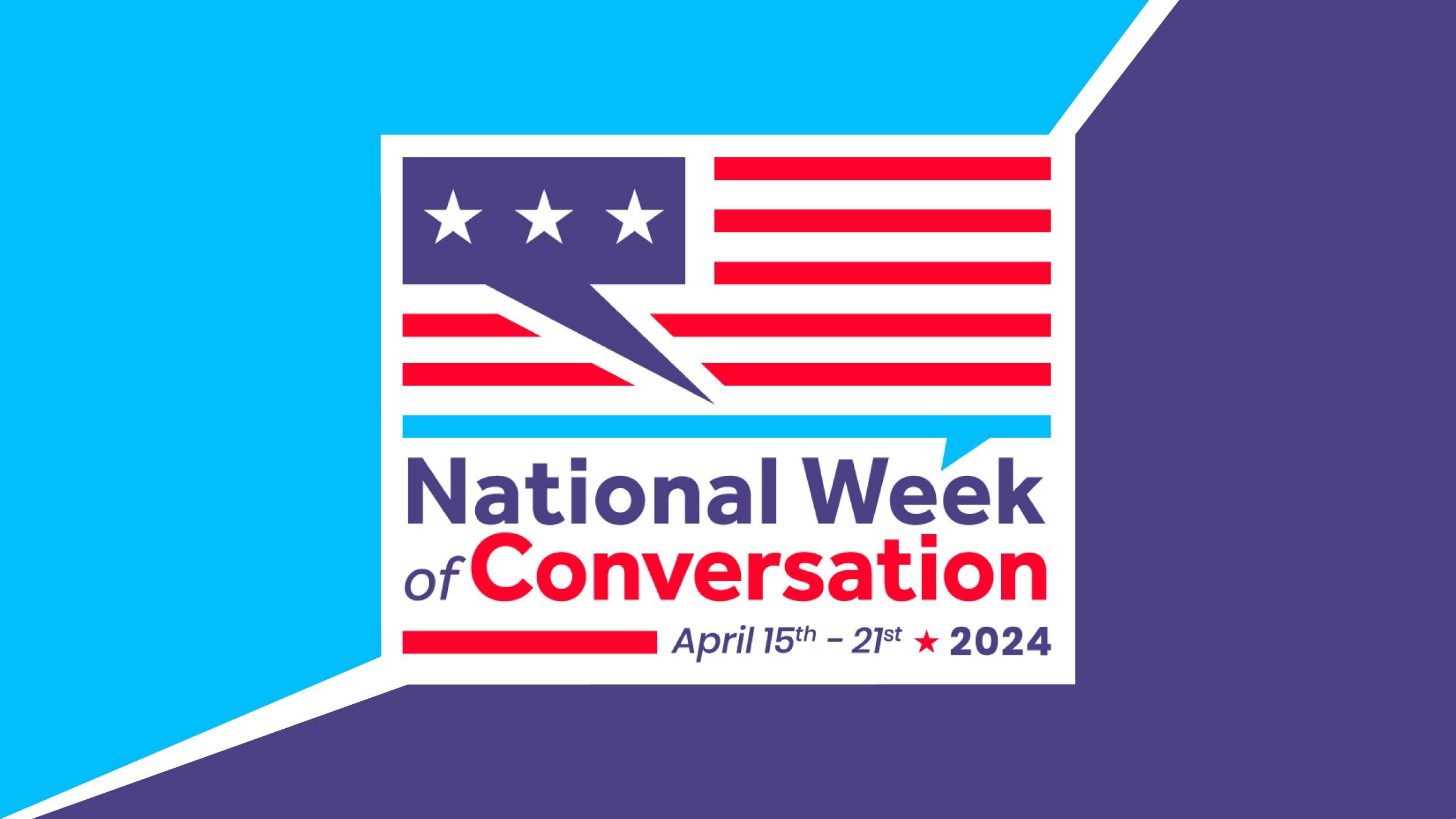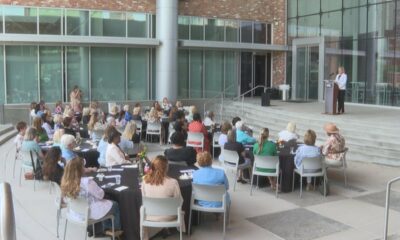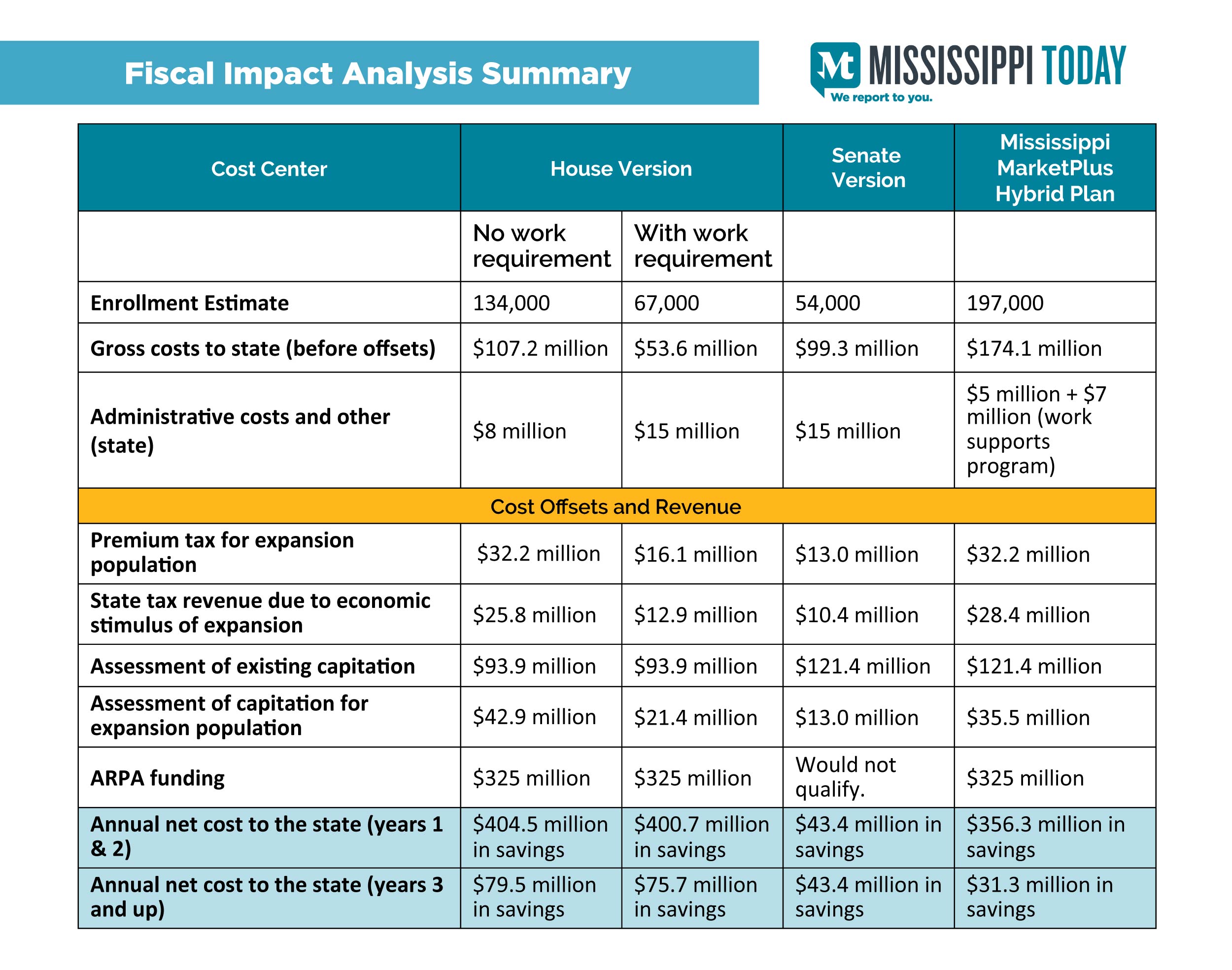Mississippi Today
Mississippi isn’t known for remote workers, but local entrepreneurs say demand is growing

Mississippi isn't known for remote workers, but local entrepreneurs say demand is growing
BILOXI — Geneva Drummer's vision is a decade in the making. The Gulf Coast entrepreneur realized what her business community needed before they did.
By 2016, Drummer was one of Mississippi's earliest leaders in flexible workspaces, virtual offices and co-working when she opened The Meeting Space in Biloxi. Four years later, the pandemic upended work habits across the country, making work-from-home more acceptable and got even the most traditional corporate leaders seeing the benefits of less traditional office setups.
Drummer's business helped fill in the blanks — and is growing fast with a second recently opened space in downtown Biloxi and a third soon to open in Gulfport.
“Mississippi has co-working spaces and the demand is there,” Drummer said, “we're still behind, but growing.”
Mississippi's flexible offices and co-working spaces — turnkey commercial offices and desks for independent remote workers, businesses and startups — are mainly clustered on the coast and near Jackson with a couple scattered in Oxford and Tupelo. They may not be as popular as they are in other states and bigger cities, but those creating the office spaces see an increasing demand.
“I think people are realizing work-from-home is great but work-from-home presents its own challenges and does not solve every problem,” said Adam Horlock, the center manager at Office Evolution in Flowood near Jackson. “Businesses are realizing: ‘We do not need a large lease or a large space somewhere, but we need something.'”
The nation's number of remote workers tripled to nearly 18% between 2019 and 2021, according to the U.S. Census Bureau's community survey. Meanwhile, 6.3% of Mississippians work from home, according to the same set of data. It may be lower than the national average, but it's still about three times more than what it was in 2016.
Drummer and Horlock primarily see remote workers who want an office to go to a couple times a week or few times a month and businesses who need designated workspaces for employees without the headaches of renting a massive office space.
Startups and small companies, especially for the state's fledgling medical cannabis business, have gone to the flexible office spaces. There's marketing firms that have workers who spend most the week at home but need a conference room for scheduled meetings a few times a month. There's the independent behavior therapist who meets with patients for sessions in a private one-desk office and an accountant that needs a rented desk to get some quiet while the kids are home from school.
“I knew I wanted office space,” said one of The Meeting Space's members, Burl Barbour, from a private suite. “I knew I wouldn't be disciplined enough if I stayed home.”
Barbour and his wife recently moved to Mississippi after years nearby in Mobile. Rather than leave his job working as a project manager for an Alabama-based commercial door company, he became a remote worker in Biloxi.
Before the move, he hadn't heard of co-working spaces. Now, he's a fan of his “own little world” at the shared office — just a 15-minute drive from his home.
Drummer said the expansion of co-working spaces as an integral part of growing Mississippi's economy. Folks need spaces to network, a hub to innovate with one another, and access affordable services without multi-year lease commitments. She seeks out downtown real estate, taking advantage of a metro area's walkability.
Drummer said most often she'll get a remote worker for about three months — maybe they just moved to the area and are still setting up their at-home office. Some opt for the open co-working spaces, where folks mingle and work, while other, like Barbour's company, pay up for private offices.
Nearby in Jackson County, economic development leaders have isolated attracting more remote workers to the Gulf Coast as a way to diversify the region's economy and attract wealthier people to the state. They're now planning ways to market the county as a destination for remote workers not tied to any one location but want to see their salary go farther.
“We have got five generations of people right now currently in our workforce,” said Mary Martha Henson, deputy director of the Jackson County Economic Development Foundation. “This remote working concept was already going on before COVID, but then in a COVID environment and a post-COVID environment, more people are in a situation where they can live where they want to and still be a productive employee.”
While the county advertises Mississippi's affordability compared to other coastal cities that are well-established destination cities, they still need to have the features millennials seek out — things that allow them to live, work and play in the same area.
“Some of the younger generation really care about quality of life features,” Henson said. “If we want to remain competitive, we really have to think about these things.”
Among the hip coffee places, restaurants and local shops, co-working offices are keeping up with the tastes of the millennial and up-and-coming Gen Z workforces.
“We're filling a need that traditional office spaces just can't fill,” Horlock said. “We're flexible, turnkey and the cost is low. We provide everything – even free Starbucks. Bring your laptop and you can usually set up that same day.”
Drummer's two Biloxi locations are a short walk from one another on Water Street and Howard Avenue, where parts of the historic downtown are closed off to cars.
She's seen other co-working spaces in the area fail — one tried making use of vacant spaces in a shopping mall. The location, she said, wasn't ideal for a lot of young workers who want to feel connected to their communities and in hubs of activity.
She said for those seeking to start a coworking space of their own, the margins are hard to make work if the business operator doesn't own their real estate outright.
Her new location in Gulfport is on the edge of downtown, but she was able to partner with Omni Technologies – an IT support company – that will be a member of the new space.
Nearby in Waveland, WorkWise's primary business is providing administrative services and support to small businesses. But rather than let part of its office space sit vacant, the company offers private offices and coworking spaces similar to Drummer's.
Drummer wants to see flexible offices and coworking spaces spread across the state. She has fielded calls from out-of-state companies seeking locations similar to hers for their remote employees in parts of the state where the options aren't available — like Columbus and Natchez.
She has expansion on her mind, but one location at a time. After Gulfport is up and running, she may turn her attention to Hattiesburg.
This article first appeared on Mississippi Today and is republished here under a Creative Commons license.
Mississippi Today
On this day in 1963
April 16, 1963

Martin Luther King Jr. wrote his “Letter from Birmingham Jail” on scraps of paper and in the margins of newspapers.
“I am in Birmingham because injustice is here,” he wrote.
Jail trusties passed his words to his lawyers, who transformed the handwriting into a 21-page typed letter to eight white clergymen who had chastised him for breaking the law.
King reminded them that everything that Adolf Hitler did in Germany was “legal” and everything the freedom fighters did in Hungary was “illegal.”
“It is the duty of people to break unjust laws,” he wrote. “Injustice anywhere is a threat to justice everywhere.”
In response to criticism that his protest was “unwise and untimely,” King responded, “I have never yet engaged in a direct-action movement that was ‘well timed,' according to the timetable of those who have not suffered unduly from the disease of segregation. For years now I have heard the word ‘wait.' It rings in the ear of every Negro with a piercing familiarity. This ‘wait' has almost always meant ‘never.'”
He said he wished these ministers had praised the protesters “for their sublime courage, their willingness to suffer and their amazing discipline in the midst of the most inhuman provocation. One day, the South will recognize its real heroes.”
This article first appeared on Mississippi Today and is republished here under a Creative Commons license.
Mississippi Today
Being Oxford’s mayor means listening first

I love Oxford. I love Mississippi. I love America. Loving America also means loving Americans. Yet, we are at a time in our history where the rhetoric only seems to get more and more divisive, and the toxic polarization is sadly becoming something we accept as the norm. We have gone past disagreeing to disliking – and even despising – those who don't agree with us. We've lost sight, in many cases, of the possibility of understanding and respecting each other.
So, do we throw in the towel? I don't think so. Accepting the idea that our communities and country are hopelessly divided can only end badly for all of us.
Studies show that most of us are actually tired of division. If you, like me, long for peace in our families, cooperation in our communities and unity in our country, let's talk. Or actually, let's listen.
When I was elected Mayor of Oxford in 2017, I knew that in order for our community to reach its greatest potential, we had to create space for community conversation. I was introduced to the Listen First Project and immediately signed on and took the pledge along with hundreds of other elected officials committing to listen first to understand. At its core is the hope that we will see each other across differences and not see problems or issues, but people and experience human connection. In 2017, I felt like being a part of this work was important. It seems even more so in 2024.
The Listen First Project has partnered with the National Week of Conversation for the Better Together Film Festival providing opportunities for us to come to the table and listen. Throughout my seven years as Mayor, I have focused on developing leaders within our city workforce. It is important that we prepare our workforce for the Oxford of the future. I believe that sharing this opportunity to present a short film and facilitate conversation as part of the Better Together Festival provides an opportunity that allows city leaders to experience something unique and potentially life-changing. This is a group of people who are leaders in departments across our community. They are setting the tone in their departments and in our community. We share the goal of leaving Oxford better than we found it, and we share hope for Oxford's future. These conversations are where we build bridges for the future and where real change can begin. Employees are not obligated to come but are making a choice to lean into something that can help them do their jobs better and to understand others more fully.
National Week of Conversation is a time to practice courage over contempt. Are you satisfied with the tension in our communities? I'm not. The “other side” is not going away no matter what side you are on. We can't wait on this to be addressed at a state or national level. We also can't minimize the effect that even small efforts have. As Margaret Mead so accurately stated, “Never underestimate the power of a small group of committed people to change the world. In fact, it is the only thing that ever has.” There is hope. And, we all have a role to play.
Join the conversation.
Join us at Noon on Friday, April 18 for a VIRTUAL lunch and learn session exploring tools to make us better listeners, and in turn, better equipped to engage in meaningful conversations across differences.
The session will be led by Dr. Graham Bodie, professor and Interim Chair of the Department of Media and Communication in the School of Journalism and New Media at the University of Mississippi.
This event is free and open to the public. Register to receive more information.
This article first appeared on Mississippi Today and is republished here under a Creative Commons license.
Did you miss our previous article…
https://www.biloxinewsevents.com/?p=349990
Mississippi Today
Experts analyze House, Senate Medicaid expansion proposals, offer compromise plan

As Mississippi lawmakers look for compromise between widely differing House and Senate Mississippi Medicaid expansion plans, experts with a health research group have projected the costs, savings and efficacy of the plans and offered a third, potential compromise plan.
The analysis shows that under each plan, the state would see net annual savings – ranging from tens of millions to hundreds of millions of dollars – by expanding the state-federal Medicaid program to cover working, poor and uninsured Mississippians. The plans, the study says, also vary widely in how many Mississippians would be covered – from around 50,000 to nearly 200,000.
The study was commissioned by the Center for Mississippi Health Policy and conducted by the Hilltop Institute at the University of Maryland, Baltimore County. Hilltop has studied Medicaid expansion nationwide and recently testified before the Mississippi House Medicaid Committee.
“We wanted to get some updated numbers based on publicly available data,” said Morgan Henderson, director of analytics and research for Hilltop. “We really want to make sure folks having these discussions have data points they need.”
The study takes the House and Senate plans at face value, even though both contain elements not likely to be approved by the federal Centers for Medicare and Medicaid Services. The Senate plan, for instance, includes a stringent work requirement for coverage that, besides potentially costing millions in administrative fees, isn't likely to be approved by CMS.
Both the House and Senate plans contain another potential poison pill that could prevent expansion from being implemented. They have 12-month moratoriums on people who qualify for the expanded Medicaid coverage from dropping private coverage and applying for Medicaid. CMS is highly unlikely to approve this, and such moratoriums would probably not meet constitutional muster in a court.
The options
Mississippi Senate plan
One striking difference between the Senate plan and the House and compromise plans is the Senate one would turn down about $1 billion a year in federal money to cover more expansion costs. It also would forego nearly $700 million over the first two years in enhanced federal funding that some refer to as a “signing bonus” for states that fully expand Medicaid per the federal Affordable Care Act.
The Senate plan would provide coverage to people making up to 100% of the federal poverty level – about $15,000 a year for an individual. Hilltop estimates this plan would cover about 54,000 people, although Senate leaders said they estimate about 40,000 people would sign up.
The Senate plan would require participants to work 120 hours a month or be enrolled as a full-time student or in a workforce training program. It would exempt some from this requirement, including parents of children under 6, people mentally or physically unable to work or those who are caregivers to disabled family members.
Cost
The state's upfront cost of the Senate plan would be paid by a 3% tax on Medicaid managed care providers.
Hilltop estimates the Senate plan would cost the state a little over $114 million per year, including $15 million in administrative costs. But when these costs are offset by the tax on providers, the economic stimulus of expansion and other offsets or revenue, Hilltop estimates a net savings to the state of $43.4 million a year.
Mississippi House plan
The House plan would provide Medicaid coverage for people making up to 138% of federal poverty level, a little more than $20,00 a year for an individual. Hilltop estimates this would cover about 134,000 Mississippians (again, factoring in the “moratorium” on leaving private coverage).
The House plan calls for work requirements – 20 hours a week or enrollment as a student or in workforce development – but would still go into effect without the requirements if CMS fails to approve them.
Under this plan, Mississippi would draw down about $1 billion a year in increased federal Medicaid payments, and over the first two years, another nearly $700 million in enhanced federal payments.
Cost
The state share of upfront costs for the House plan would be covered by a 4% tax on Medicaid managed care providers.
Hilltop estimates the House plan, with no work requirement approved, would cost a little over $115 million, including $8 million in administrative costs. But when these are offset by the tax on providers, economic stimulus and other offsets or revenue, Hilltop estimates an annual savings for the state of more than $404 million a year for the first two years, then $79.5 million a year for the third year and beyond.
House Speaker Jason White and others have noted that the enhanced federal payments to the state totaling nearly $700 million over the first two years would cover all state costs for the first four years of the House expansion plan. White also noted that the House plan, even if a work requirement is not approved, would require the managed care organizations to track employment and other data from those covered.
Compromise ‘hybrid plan‘
Hilltop's “Mississippi MarketPlus Hybrid Plan” would offer expanded Medicaid coverage through the state's managed care program for those making under 100% of the federal poverty level. For those making 100% to 138% (up to $20,000 for an individual) of poverty level, the plan would use federal money to provide assistance for them to buy private insurance plans through Mississippi's marketplace exchange.
Hilltop estimates this plan would provide coverage for 197,000 Mississippians.
The plan would require managed care companies to provide employment support and require mandatory referral to workforce training. It would also require those covered to pay marketplace insurance co-pays, but would not include a work requirement or moratorium on people leaving private insurance.
Like the House plan, this plan is expected to qualify the state for enhanced federal Medicaid payments and the two-year “signing bonus” of nearly $700 million.
Cost
The plan, like the Senate's, includes a 3% tax on Medicaid managed care providers to help cover state costs.
Hilltop estimates the upfront cost to the state for this plan would be a little more than $186 million, including $12 million in administrative costs (including work support). But these would be offset by the tax on providers, economic stimulus from expansion and other offsets or revenue. Hilltop estimates a net savings to the state for this plan of more than $356 million a year for the first two years, then $31.3 million a year in savings for years three and up.
The Hilltop study also noted this plan would allow the state to receive a 90% federal match for services currently funded only with state dollars, including hospital services for incarcerated people and some behavioral health services.
Other findings
Hilltop's report says that Medicaid work requirements – when they were previously allowed by the feds – have not shown to increase workforce participation. It said, “Moreover, the Arkansas experience demonstrates that the administrative burden in reporting work status can lead to Medicaid coverage loss for the working poor – thus hurting the exact individuals designed to be covered under work requirements.”
A Georgia program similar to the Mississippi Senate's plan in several regards, has shown that stringent work requirements result in low enrollment and high administrative costs, the Hilltop study notes. As of recently, the Georgia program had enrolled only a few thousand people and over 90% of its costs to-date have been administrative costs and consulting fees. Georgia is still battling the federal government in court over its work requirements.
The Hilltop study found the Senate's plan “contains high budget risk” to the state. Since the plan eschews extra federal funding available for expansion, “if enrollment exceeds estimates, there would be proportionally greater budget overruns in the Senate version than the alternative plans.” It noted that to protect state coffers, language could be inserted to the House or hybrid plan that rescinds the expansion should the enhanced federal match drop.
This article first appeared on Mississippi Today and is republished here under a Creative Commons license.
Did you miss our previous article…
https://www.biloxinewsevents.com/?p=349711
-
Mississippi News2 days ago
Mississippi will soon be bombarded with cicadas
-
Mississippi News6 days ago
Community rallies behind Starkville High basketball coach
-
SuperTalk FM6 days ago
Ex-cop arrested in connection to killing at Jackson apartment complex
-
SuperTalk FM1 day ago
4 tornadoes touched down in Mississippi during latest round of severe storms
-
SuperTalk FM2 days ago
2 Jones County correctional officers arrested in smuggling bust
-
Mississippi News6 days ago
One dead, one injured after severe storms hit Mississippi
-
Mississippi News4 days ago
Columbus schools may see needed upgrades with bond issue
-
Local News2 days ago
Almost 3,500 Mississippi Veterans have enrolled in VA health care in past 365 days, 28% increase over last year










































